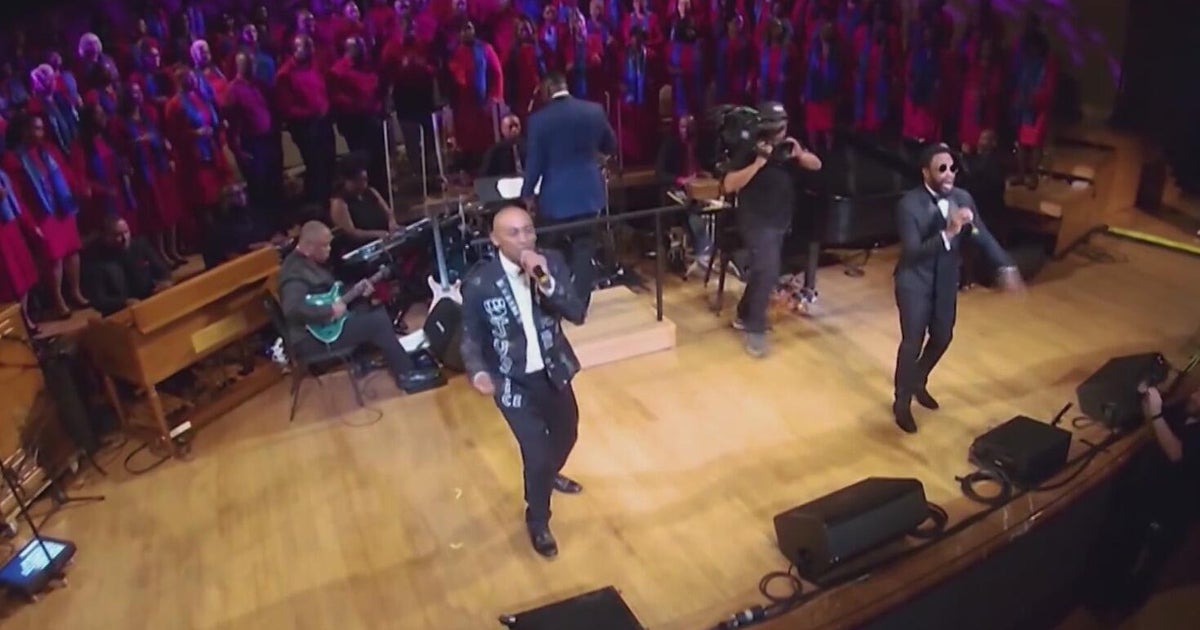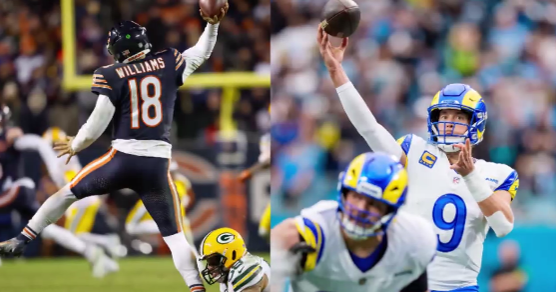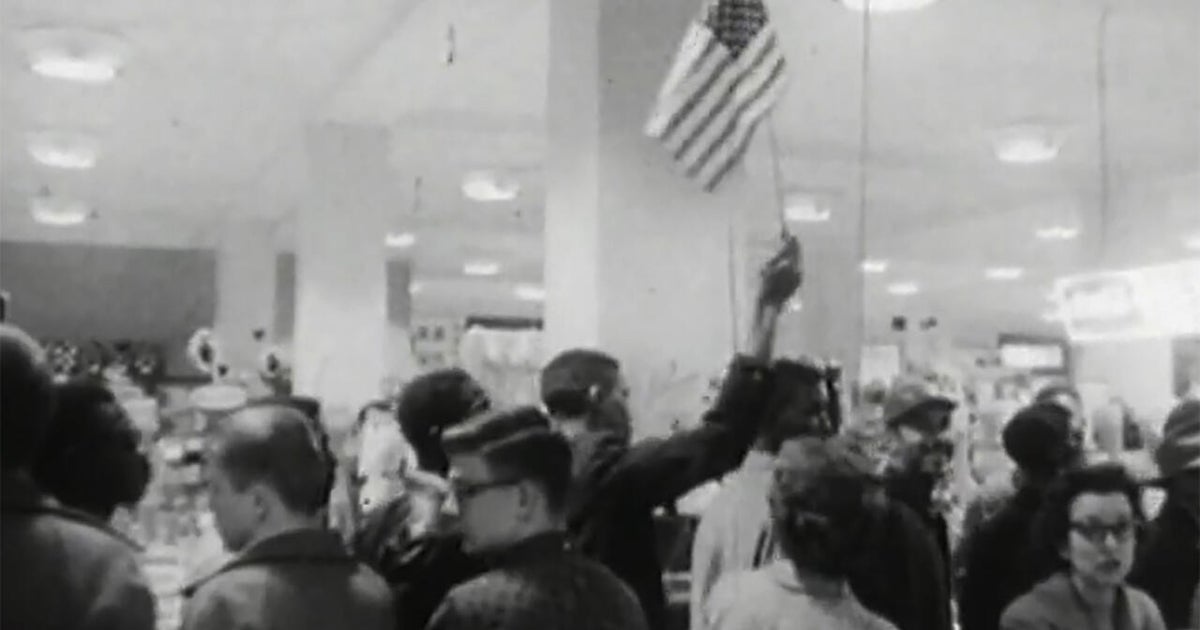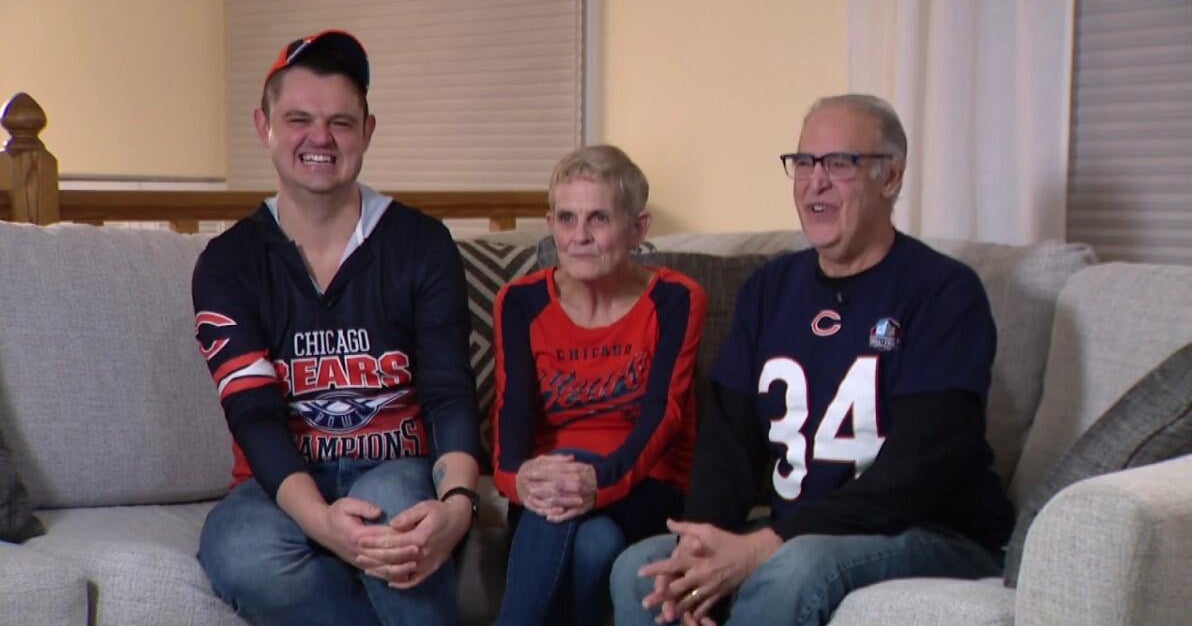Hugh Hefner Recalls His Role As An Activist For Civil Rights
BEVERLY HILLS (CBSLA.com) — While many know Hugh Hefner as the founder of "Playboy" magazine, there is more to the Playboy icon than most people might think.
It began as a global empire built on the success of sex and soon evolved into a foundation to challenge change.
"I want to live in a society that people can voice unpopular opinions because I know a result of that a society grows and matures," said Playboy icon Hugh Hefner, who recently turned 85-years old.
I recently sat down with Hefner at his Holmby Hills estate -- the infamous Playboy Mansion -- to reflect on life beyond the "bunnies". Few know that behind the Playboy veil lies an activist and rebel with a cause.
While Hefner reflected upon the nostalgia of over eight decades of his life, the archives and photos lining his walls told another story.
"I felt from a very early age that there were things in society that were wrong, and that I might play some small part in changing them," Hefner said.
Throughout his life, Hefner has always seemed to get along with people of many different backgrounds.
"No question it came from my folks. The reality is you have to be taught into being a prejudice person. And I wasn't," he said.
But what Hefner was, was a man on a mission to alter society's conservative views on sex, politics and social equality. Playboy would be his tool.
"Playboy was the first mainstream club, non-black club that actually put on stage black comedians," Hefner said. "Even in Las Vegas Black performers that performed on, including Sammy Davis, who was a very close friend of mine, would appear on stage, but they couldn't walk through the casino. They had to walk through the back entrance."
"When we started franchising, when they refused our members, the black members, entrance, I said, 'you can't do that, these are members of our club.' And we literally bought back the franchised clubs," he said.
Hefner was seen with a young Jesse Jackson, as he met Dr. Martin Luther King Jr.
"When Dr. King came to the Playboy Mansion, he was in Chicago specifically to deal with the segregation that existed in Chicago. And that is really how I met Jesse and I was very actively involved after King's death in the funding of PUSH and the Rainbow Coalition," he said.
"In fact, the last published piece written by Dr. Martin Luther King Jr. before his death appeared in Playboy. 'Playboy' magazine became the platform for freedom in a time of restriction.
"The very first interview was Miles Davis and he didn't talk so much about music, he talked about wishes and equality," Hefner said.
From abortion to capital punishment to the Vietnam War, Playboy was the forum for Hefner's concerns in society.
"We live on one very small planet and the things that separate us as people are less important than the things that we share," he said. "I think we need to find those common connections and knock down those walls. And find ways to live together."
Hefner says there are a lot of things that he is proud of in his life, but one of his biggest accomplishments is The Playboy Jazz Festival. Into its 33rd year, the festival will be at the Hollywood Bowl next month, June 11 and 12. For more information visit www.playboyjazzfestival.com.
Raw Interview Clips:
» VIDEO: Hugh Hefner Reveals The History Behind The Playboy Jazz Festival
» VIDEO: Hugh Hefner Talks About Beginnings Of Playboy







